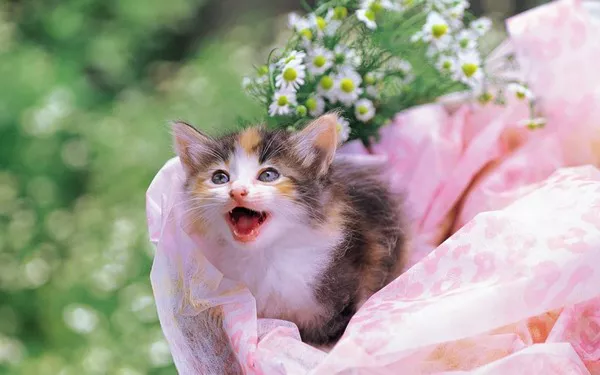Cornish Rex cats, known for their unique appearance and playful demeanor, also exhibit distinct sleep patterns compared to other feline breeds. Understanding their sleep requirements and habits is essential for providing optimal care and ensuring their overall well-being.
On average, Cornish Rex cats require around 12 to 14 hours of sleep per day, which is consistent with the general sleep needs of domestic cats. However, individual variations may occur based on factors such as age, health status, and lifestyle.
Factors Influencing Sleep
Age plays a significant role in determining a Cornish Rex cat‘s sleep patterns. Kittens, for instance, tend to sleep more than adult cats, often clocking in 16 hours or more per day. As they mature, their sleep duration typically decreases but remains substantial compared to other adult cats.
Health conditions can also impact a Cornish Rex’s sleep quality and duration. Cats experiencing discomfort or pain may have disrupted sleep patterns or struggle to achieve deep, restorative sleep. Additionally, underlying medical issues such as hyperthyroidism or arthritis can affect their ability to sleep comfortably.
The lifestyle of a Cornish Rex cat, characterized by their playful and active nature, influences their sleep habits. Engaging in regular physical and mental stimulation through play and exploration helps fulfill their natural instincts and contributes to a balanced sleep-wake cycle.
Sleep and Activity Balance
Maintaining a balance between sleep and activity is crucial for the well-being of Cornish Rex cats. Despite their playful disposition, they require adequate rest to recharge and recuperate. Engaging in interactive play sessions and providing environmental enrichment during waking hours can help satisfy their need for mental stimulation while promoting restful sleep.
Owners should strive to establish a routine that includes designated playtime and opportunities for relaxation to support their Cornish Rex’s overall health and happiness. Ensuring access to comfortable resting spots throughout the home encourages them to unwind and rest when needed.
Signs of Healthy Sleep
Healthy sleep for a Cornish Rex cat is characterized by regular sleep-wake cycles, uninterrupted rest, and relaxed body posture during sleep. Signs of good sleep health include:
Peaceful and undisturbed rest, with minimal movement or vocalization.
Relaxed muscles and absence of tension or twitching during sleep.
Regular grooming behaviors upon waking, indicating a refreshed state.
Observing these signs can help owners gauge the quality of their Cornish Rex’s sleep and identify any potential issues that may require attention.
Creating a Comfortable Sleep Environment
Providing a comfortable sleep environment is essential for promoting quality rest in Cornish Rex cats. Considerations for creating an ideal sleeping space include:
Soft bedding: Choose bedding materials that offer support and comfort, such as plush blankets or padded cushions. Avoid materials that may irritate their sensitive skin or cause discomfort.
Temperature regulation: Cornish Rex cats have a higher metabolism and may be more sensitive to temperature changes. Ensure the sleep area is neither too hot nor too cold, and consider providing additional warmth during cooler months.
Dim lighting: Create a calm and relaxing atmosphere by reducing ambient lighting in the sleep area. Dimming the lights mimics natural nighttime conditions, signaling to the cat that it’s time to rest.
Quiet surroundings: Minimize noise and distractions in the vicinity of the sleep area to promote uninterrupted rest. Consider placing the sleeping spot in a quiet corner away from high-traffic areas.
By addressing these factors, owners can create a sleep-friendly environment that supports their Cornish Rex’s natural sleep instincts and promotes overall well-being.
Common Sleep Issues
While Cornish Rex cats generally enjoy healthy sleep patterns, certain issues may arise that warrant attention:
Insomnia: Persistent difficulty falling or staying asleep may indicate underlying health issues or environmental stressors. Consulting a veterinarian can help identify and address the root cause of insomnia.
Restless sleep: Excessive movement or vocalization during sleep may suggest discomfort or pain. Investigating potential sources of discomfort, such as an uncomfortable sleeping surface or underlying medical conditions, is recommended.
Sleep disturbances: External factors such as noise, light, or changes in routine can disrupt a Cornish Rex’s sleep patterns. Minimizing disturbances and maintaining a consistent sleep environment can help mitigate these issues.
FAQ Section
How can I help my Cornish Rex cat establish a consistent sleep schedule?
Encourage regular play and exercise during waking hours to promote fatigue and a natural sleep-wake cycle. Establishing a consistent bedtime routine, such as providing a quiet and comfortable sleep environment, can also help regulate their sleep patterns.
Should I be concerned if my Cornish Rex sleeps more than usual?
While Cornish Rex cats typically require ample sleep, significant deviations from their usual sleep patterns may warrant attention. Monitor their behavior for signs of lethargy, appetite changes, or other concerning symptoms, and consult a veterinarian if necessary.
Are there specific sleep positions that indicate discomfort in Cornish Rex cats?
While sleeping positions can vary among individual cats, tense or curled-up postures may suggest discomfort or anxiety. Conversely, relaxed and stretched-out positions typically indicate comfort and contentment during sleep.
In conclusion, understanding the unique sleep patterns and needs of Cornish Rex cats is essential for providing optimal care and ensuring their overall health and well-being. By considering factors such as age, health, lifestyle, and environmental conditions, owners can create a supportive sleep environment and address any sleep-related issues that may arise. Regular monitoring and attention to their sleep habits can help foster a happy and healthy relationship between owners and their Cornish Rex companions.
Related Topics:






















